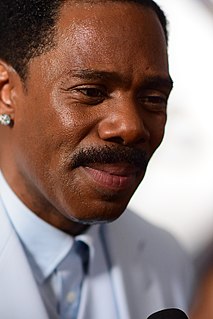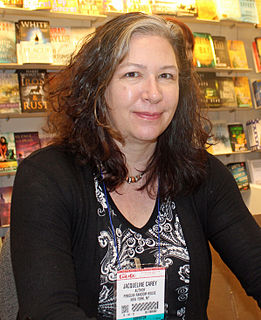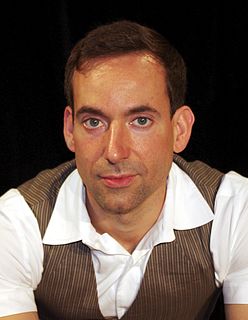A Quote by Lewis Carroll
But I was thinking of a way To multiply by ten, And always, in the answer, get The question back again.
Related Quotes
To be a scientist you have to be willing to live with uncertainty for a long time. Research scientists begin with a question and they take a decade or two to find an answer. Then the answer they get may not even answer the question they thought it would. You have to have a supple enough mind to be open to the possibility that the answer sometimes precedes the question itself.
If you ask a living teacher a question, he will probably answer you. If you are puzzled by what he says, you can save yourself the trouble of thinking by asking him what he means. If, however, you ask a book a question, you must answer it yourself. In this respect a book is like nature or the world. When you question it, it answers you only to the extent that you do the work of thinking an analysis yourself.
Perhaps one of the most powerful keys to determining our experience of the months ahead comes from a shift in thinking that invites us beyond asking, 'What can I get from the world that exists,' to asking, 'What can I offer to the world that is awakening?' The way we answer this question as individuals becomes our collective answer to what comes next.
If you had a system that could read all the pages and understand the context, instead of just throwing back 26 million pages to answer your query, it could actually answer the question. You could ask a real question and get an answer as if you were talking to a person who read all those millions and billions of pages, understood them, and synthesized all that information.
We can each sit and wait to die, from the very day of our births. Those of us who do not do so, choose to ask - and to answer - the two questions that define every conscious creature: What do I want? and What will I do to get it? Which are, finally, only one question: What is my will? Caine teaches us that the answer is always found within our own experience; our lives provide the structure of the question, and a properly phrased question contains its own answer.
If I could go back to a point in history to try to get things to come out differently, I would go back and tell moses to go up the mountain again and get the other tablet. Because the Ten Commandments just tell us what we are supped to do with one another, not a word about our relationship to the earth. Genesis starts with these commands: multiply, replenish the earth, and subdue it. We have multiplied very well, we have replenished our populations very well, we have subdued it all too well, and we don't have any other instruction.
When I decided to write about my brother and friends, I was attempting to answer the question why. Why did they all die like that? Why so many of them? Why so close together? Why were they all so young? Why, especially, in the kinds of places where we are from? Why would they all die back to back to back to back? I feel like I was writing my way towards an answer in the memoir.



































